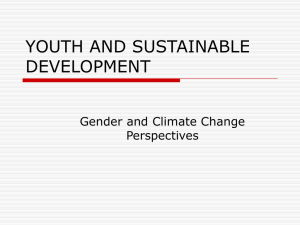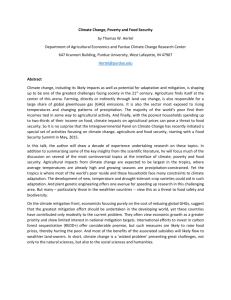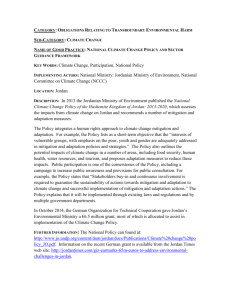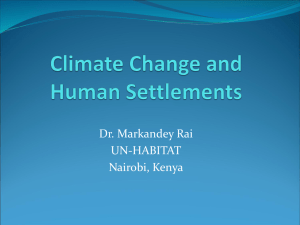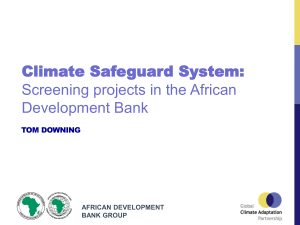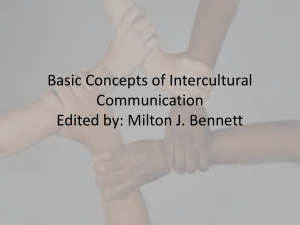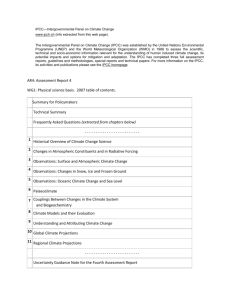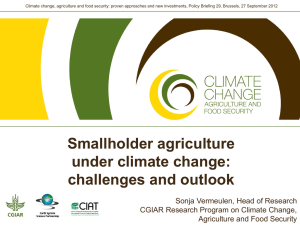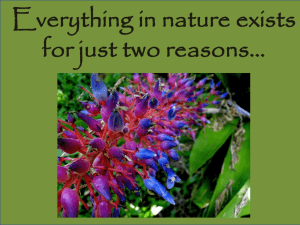Integrating Climate Change Adaptation and
advertisement
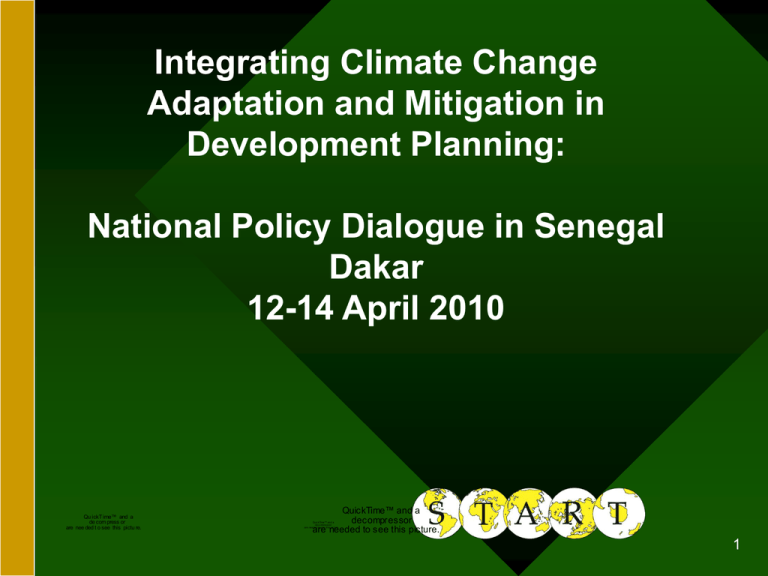
Integrating Climate Change Adaptation and Mitigation in Development Planning: National Policy Dialogue in Senegal Dakar 12-14 April 2010 Qu ickT ime™ and a de com press or are nee ded t o see this pictu re. QuickTime™ and a decompressor are needed to see this picture. QuickTime™ and a decompressor are needed to see this picture. 1 G E O R G E A brief perspective on START and its capacity building activities in Africa • Human Resource Development: Fellowships, (ACCFP); small grants for research >>> Regional research networks; • Institutional Strengthening: PASS, Regional research and training nodes; PACOM P E R K I N S M A R S H I N S T I T U T E www.start.org G E O R G E P E R K I N S M A R S H I N S T I T U T E • The Senegal National Dialogue is the fifth in the series of nine dialogues • Regional training and assessments to follow • The partners are: START, EU, UNEP, WCRP, WMO, IPCC Three regional centers: • IRA/PASS at UDSM, UGhana, BCAS Local organizers: ENDA (here); others Structure of the Dialogue: G E O R G E P E R K I N S M A R S H I N S T I T U T E • Consider the IPCC Assessments and projections: Science: • Issues of Impacts, Vulnerability and Adaptation; Issues of Mitigation • Consider Senegal National Issues, Concerns and Strategies INTENT: • Foster continued national dialogue across all stakeholder communities, especially the SciencePolicy-Practitioner-Civil Society Communities G E O R G E P E R K I N S M A R S H I N S T I T U T E • Outcomes: – Informed and engaged communities – Informed participation in national and international efforts • Emphasize – Important to have a dialogue ; not just a series of Powerpoint presentations and Q&A • A few thoughts… – Perception of Interaction between SciencePolicy-Practitioner communities – Adaptation (and Mitigation) is a dynamic adjustment process and intimately connected to sustainable development Science-Policy-Practitioner communities G E O R G E P E R K I N S M A R S H I N S T I T U T E Roger Kasperson G E O R G E P E R K I N S M A R S H I N S T I T U T E G E O R G E P E R K I N S M A R S H I N S T I T U T E THREE MAJOR TYPES OF Interactions (“SPIDER WEBS”) • SIMPLE SPIDER WEB – Strong linkage between science and primary decision makers – Example: IPCC • COMPLEX BUT STABLE SPIDER WEBS – More numerous and complex stakeholders – Less direct linkage: science and decision making – Example: Nuclear proliferation • DYNAMIC AND UNSTABLE SPIDER WEBS – Complex actors, shifting actors and coalitions – Diffuse and contentious – Example: Marine fisheries, sectoral issues and livelihoods Roger Kasperson G E O R G E P E R K I N S M A R S H I N S T I T U T E • Adaptation in a “stationary climate” has been happening, mostly in a reactive fashion • BUT, normal climate can no longer be assumed! Must engage in anticipatory actions as a dynamic process of adjustment Formerly G E O R G E P E R K I N S M A R S H I N S T I T U T E • • • • • • • Stationery climate Event and recover Droughts Coastal floods Local disasters Humanitarian Common concern Now and in future • • • • • • • Uncertain changing Merging events Progressive desiccation Sea level rise Systemic risks Risk reduction Common responsibility Ian Burton G E O R G E P E R K I N S M A R S H I N S T I T U T E Integration Challenges • Adaptation is local, regional, national, trans-border, international, global • Adaptation is multi-sectoral: water, health, ecosystem services, infrastructure, forests, fish, agriculture • Adaptation co-benefits or emissions? • Adaptation is a dynamic process • Multiple risks, floods, droughts, cyclones and SLR Ian Burton A New Paradigm G E O R G E P E R K I N S M A R S H I N S T I T U T E • ADAPTATION as well as Mitigation • An economic development and an equity issue • A security issue • A governance issue • A long-term imperative • Resilience? • A Resilient Senegal in an Adaptive World Ian Burton Good View/perspective … G E O R G E P E R K I N S M A R S H I N S T I T U T E But, neither good adaptation, Nor mitigation!!
